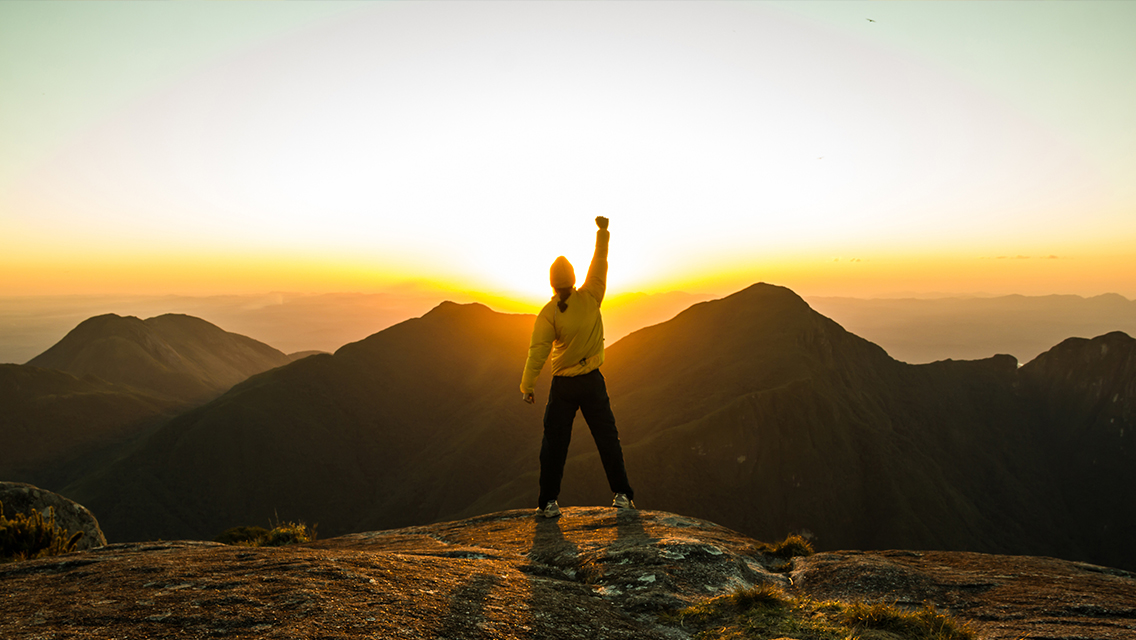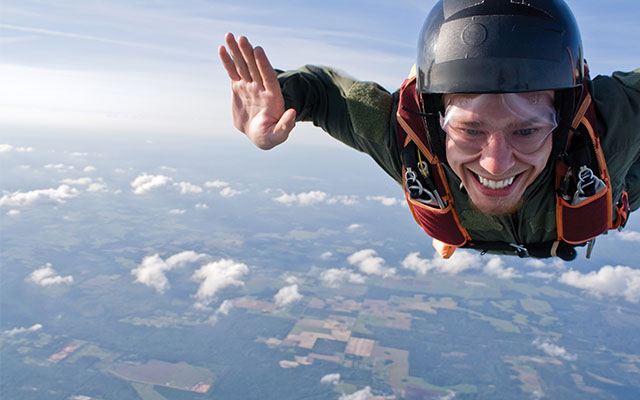On a beautiful summer evening in 2016, actress Christiana Clark was walking her dog in Ashland, Ore., where she was performing with the Oregon Shakespeare Festival (OSF). A man on a bicycle approached, and she pulled out her earbuds to hear him say, “It’s still an Oregon law — I could kill a black person and be out of jail in a day and a half. Look it up. The KKK is alive and well here.”
Clark, who is African American, was badly shaken. Carolyn and Daniel Verner, who live nearby, heard what sounded like someone being threatened and rushed outside. They asked Clark if she was being harassed and if she was all right, offering warmth and a welcome sense of safety in a deeply unsettling moment.
Clark spoke courageously about the incident the following week at OSF’s Juneteenth celebration. She later participated in a series of festival and city-sponsored forums on racism designed to strengthen Ashland’s commitment to justice and equality. In a Facebook video recorded after the incident, Clark vowed to “work hard to work this off and find love.”
Clark, the Verners, OSF, and the Ashland community all knew their decisions to confront racism carried some risks, but they each did it anyway.
Clark could have made the under-standable choice to stay silent in the wake of the incident, or to lash out in anger. The Verners could have opted to stay in their home and not get involved. OSF and the Ashland community could have brushed the incident under the rug, fearful of risking the city’s reputation as a welcoming place.
Instead, they all acted in accordance with their values rather than their personal interests. In doing so, they transformed an encounter with hate into a reason for hope.
1. Choosing Courage
Whether it’s intervening in an act of bullying or harassment, defending our views at the family dinner table, or refraining from unkind gossip, standing up for ourselves and others takes guts.
It also takes heart. Best-selling author Brené Brown, PhD, LMSW, a research professor at the University of Houston Graduate College of Social Work, has written and spoken extensively about courage — a term, she notes, that comes from the Latin word for “heart.”
Courage encompasses both the inner strength and the vulnerability required to authentically share ourselves and our experiences, good and bad. Some of us need to gather the nerve to speak up, while others may find it hard to resist the natural rush to anger, defensiveness, or aggression. In both cases, we suppress the vulnerability that true courage requires.
“Vulnerability is not weakness, and the uncertainty, risk, and emotional exposure we face every day are not optional,” Brown writes in Daring Greatly. “Our willingness to own and engage with our vulnerability determines the depth of our courage.”
Yet there are material reasons why some people are able to summon courage more easily than others.
“We’re cued by our environments and conditioning,” explains Brooke Deterline, CEO of Courageous Leadership, a research group that teaches ethical behavior to business leaders. “If we had a lot of role models early on who reacted with an open heart when stressed, then we’re lucky with our conditioning, not necessarily inherently better than someone who didn’t have those role models.”
Courage is something we can all learn, regardless of our conditioning. “Our brains are not our fault,” she says, “but they are our responsibility.”
Taking responsibility means being responsive to challenges, rather than reactive. “We often refer to courage as giving someone a piece of your mind,” says Deterline. “But courage is actually giving someone a piece of your heart. It’s staying open-hearted in conflict, and that is hard.”
2. Embracing Fear
Courage is defined not by lack of fear but by a willingness to experience it. Pema Chödrön, renowned Buddhist teacher and author of The Places That Scare You, points out that irritation, disapproval, indignation, inadequacy, guilt, and shame are all barriers we create to avoid feeling our fear of pain.
The courageous path, on the other hand, requires what she calls “tender-hearted bravery,” or a willingness to engage with that fear.
“The journey of knowing fear, moving closer to fear, is, in fact, the journey of courage,” she explains. “You actually can stay with [fear]; you actually can turn toward it; you actually can leap into it rather than having it set off this chain reaction.”
Recognizing when our hearts and minds begin to race is the first step toward interrupting this reaction, as expressed in this quote commonly attributed to Holocaust survivor Viktor Frankl: “Between stimulus and response there is a space. In that space is our power to choose our response.”
Deterline’s workshops use Social Fitness Training, a cognitive-behavioral model that helps participants find that “space between stimulus and response” so they can reconnect with their values and act from their “ethical core.”
“With practice,” she says, “we can train our brains to override the natural fear response and act instead from our values.”
Whether we’re called upon to intercede in an act of harassment, voice our beliefs in a hostile environment, or resist unethical practices, these tips can help nurture deep moral courage.
3. Foster a Sense of Worthiness
Confidence and self-love facilitate courageous behavior. Yet, because of particular childhood experiences or cultural and social conditioning, many of us feel unworthy.
“[I used to] be so nice and so accommodating that no one would ever accuse me of anything bad,” says Chödrön. “It was a cover-up for that deep feeling that I wasn’t worthy.”
Many of us believe we’ll be fully deserving of love and belonging only when we meet certain external expectations — when we lose that 10 pounds or get that promotion. It’s an attitude that not only keeps us from living fully in the present moment, but it also undermines our ability to stand for our values. If we don’t believe our stance is worth fighting for, we won’t fight for it.
Yet each of us is born worthy; it’s not something we earn. “There are no prerequisites for worthiness,” says Brown.
When we understand our worth is innate, we extend that sense to others. We grasp that others matter, no more or less than we do.
So everyone benefits from developing a sense of self-worth — whether it’s by building confidence in a dance class or working with a therapist to uncover outdated beliefs.
4. Identify Your Patterns
Clammy hands, flushed face, pounding heart, tightness in the throat — the familiar signs of a stress reaction. These alarm bells signal that our bodies are preparing to confront a threat, whether that’s an argument with a spouse or a surprise encounter with a bear on a hiking trail. Learning to identify those sensations, as well as the habitual thought and behavior patterns that follow them (like freezing, fleeing, or lashing out), offers an opportunity to make a more clear-headed choice.
In Deterline’s workshops, participants create a personal “stress profile,” identifying and recording their automatic thoughts and behavioral patterns.
Through teamwork, “the stress-profile exercise creates a lot of empathy and compassion,” she says. “It helps people realize that everyone struggles with this same stuff.”
You can create your own stress profile simply by noticing how your body and mind respond to fear. Write it down, and carry the list with you so you can refer to it when you start to amp up; it may help give you the distance you need to diffuse a reaction.
5. Befriend Your Stress
A 2012 Harvard University study found that our view of stress can affect our physical and emotional health. Subjects who viewed stressful experiences in a positive light showed reduced artery constriction and returned more quickly to a calm baseline state.
This study illustrates how much perception matters, says psychologist Kelly McGonigal, PhD, author of The Upside of Stress. “What if you viewed [the physical signs of stress] as signs that your body was energized and was preparing you to meet this challenge?”
The ability to learn and grow from stress is built into the basic biology of the sympathetic nervous system, she explains. “For several hours after you have a strong stress response, the brain is rewiring itself to remember and learn from the experience. Stress leaves an imprint on your brain that prepares you to handle similar stress the next time you encounter it. Going through the experience gives your brain and body a stress vaccine.”
McGonigal’s research reminds us not to let a stress response keep us silent or still. These reactions may mean that your body registers the moment as important. What’s more, it will remember the experience so you’ll be able to handle it with less fear the next time around.
6. Own Your Power
It’s easier to act courageously when we believe our actions can make a difference. “We often think power is just political or military might,” says University of California, Berkeley, psychology professor Dacher Keltner, PhD, author of The Power Paradox. But social behavior is contagious, and this can make our individual actions surprisingly powerful.
“I have a lot of influence in my community as I move through the day, just through kind practices,” Keltner says. “Any act you engage in, no matter how disconnected from power you might feel, ripples out and influences others.”
Knowing that our behavior is contagious can empower us to interrupt escalating anger or aggression. “In the midst of an argument, if we give people a different option — say, ‘I’m sorry; you sound really afraid’ — it can dramatically change the response we get back,” says Deterline. “It takes courage to not mirror what you’re getting, but it can dramatically change the outcome.”
Likewise, awareness allows us to take advantage of our innate tendency to mirror each other. “If you’re aware of how people’s conformist tendencies operate, you can try to harness them for good,” notes Elizabeth Svoboda, author of What Makes a Hero? The Surprising Science of Selflessness.
In one famous experiment, researchers showed participants a picture of a line and asked them to choose which of three other lines equaled it in length. When other people around them chose the wrong answer, the subjects often agreed. Svoboda cites a variation on the experiment in which people were far less likely to follow the crowd’s lead when just one other person chose the correct line length.
“When you speak out about injustices happening in front of you, you can help tip the social balance toward truth,” she writes.
7. Find Allies
We’re not meant to change the world alone. Acting with others who share our values and beliefs is a time-tested tactic for bolstering our courage and amplifying the power of each member of the group.
“One person standing up is honorable, but not always effective,” says Deterline of her observations in the business world. “One ally is better, and two allies start to represent an organizational point of view, giving the individuals more leverage in changing group dynamics and systems.”
8. Practice and Prepare
Like pilots and doctors who train in simulated high-stress circumstances, we can prepare ourselves to respond skillfully under pressure.
Deterline recommends practicing courageous conversations or interactions, such as an unplanned altercation on the street, a scheduled meeting with a colleague, or a tough talk with a family member or friend.
“Speak in front of a mirror,” she says. “Watch yourself doing it. It can change your thinking, help you hone what you’re trying to say, or clarify who the appropriate person is to have that conversation with.”
Better yet, find a friend who can practice that challenging conversation with you (yet another benefit to having allies).
Self-defense workshops and mediation training sessions also provide ample opportunity to rehearse difficult encounters. Think of it as practicing your free throw on the basketball court or training for a long race. You’re teaching your body to know what to do — even when your mind goes blank.
Deterline also has her work-shop participants formulate a personal support statement they can recite when they feel their courage faltering. She asks them to think of a time when they were uncomfortable but spoke up anyway, and to identify what they said to themselves in that moment.
“For some, it’s ‘No matter what happens, I am my father’s daughter,’ or ‘I want to be an example for my kids,’” she says. “You can see people’s bodies change when they tap into their supportive statement. It grounds them in remembering that even in the face of unwanted consequences, it’s still worth it to them to act from their core values.”
9. Know Thyself
Kristen Renwick Monroe, PhD, a political science and philosophy professor at the University of California at Irvine, interviewed dozens of “little-known heroes” for her book The Heart of Altruism, including a Czech businessman who rescued more than 100 Jews in Nazi Germany and a woman who, armed only with her cane, saved a young girl who was being raped.
She’s learned from her subjects that people do good in the world “not because there’s a payoff for it — a better spot in paradise, if you will,” she says. They do it because they’ve learned that standing up for others is deeply rewarding in the here and now. “You do it for yourself,” she says. “Nothing else matters in the end.”
This article originally appeared as “Cultivating Courage”.




This Post Has 0 Comments